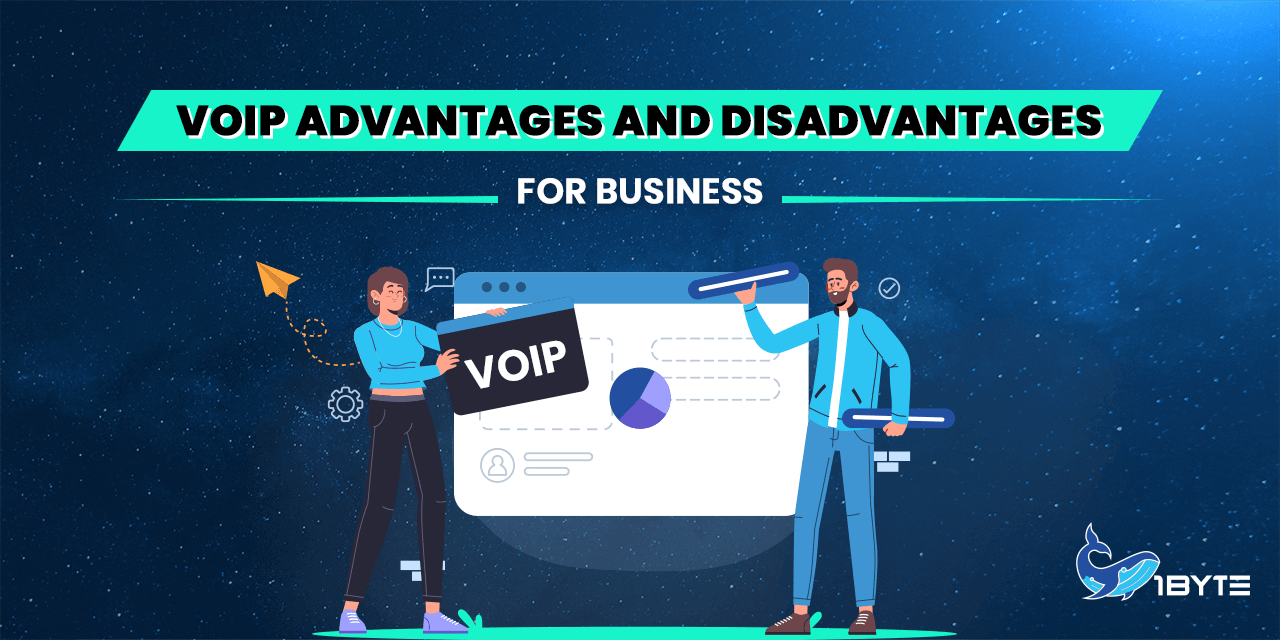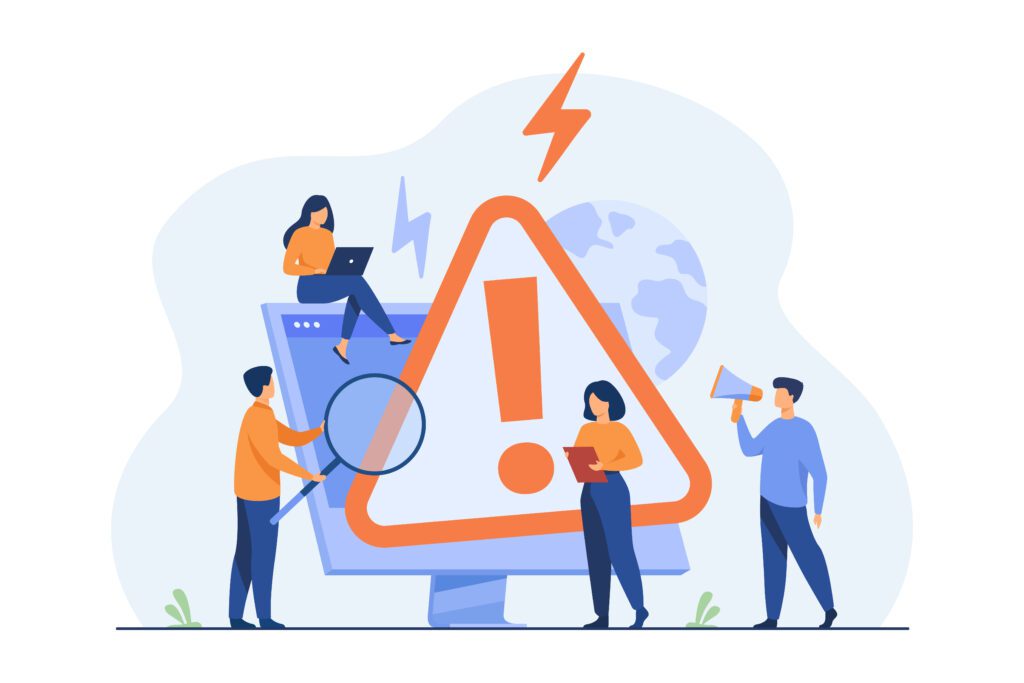VoIP Advantages and Disadvantages for Business

Voice Over Internet Protocol (VOIP) is very useful in keeping organizations running smoothly by providing a variety of functions such as video calls and business dashboard monitoring. No wonder when more and more businesses are considering VOIP rather than regular phone lines. However, there are some disadvantages to utilizing VOIP. However, once you have a general understanding of VoIP, including its benefits and drawbacks, you will be able to determine whether it is the best option for your company.
What is VoIP?
VoIP technology allows people to communicate with each other using the internet as the communication medium. This type of communication is different from the traditional telephone system, which uses a circuit-switched network. VoIP uses packet-switched networks, which are much more efficient and allow for more flexibility.

The first step in VoIP is to convert the audio data from the caller into a digital signal. This signal is then sent over an IP network to the receiver. At the receiver end, the signal is converted back into an analog signal so that it can be heard by the person on the other end. One of the benefits of VoIP is that it allows users to make calls from anywhere in the world as long as they have an internet connection. Calls can be placed and received using a computer, tablet, or mobile phone, but VoIP typically uses traditional-looking handsets connected to an internet port.
FURTHER READING: |
1. How Much Does a VoIP Phone System Cost |
2. How Much Does Cloud-Hosted Calling Cost? |
VoIP advantages
VoIP systems are a great solution for both businesses and private use. They offer many advantages over traditional phone systems. For example, thousands of people can join a single conference call. VoIP allows for better call quality, and there are no geographical limitations. Let’s dive more into its benefits:
Cost-saving
With VoIP, you’ll only have one bill for your broadband service, instead of two separate bills for telephone and internet service. Additionally, most VoIP plans include free calls between your company’s locations and only minimal charges for international calls. As a result, VoIP can save your business money on both monthly bills and long-distance calling charges.
Easy to install and maintain
The biggest benefit of VoIP is that it’s much easier to install and maintain than a traditional phone system. You won’t need any extra hardware or cables, and you can do it all yourself with just a computer and an Internet connection. In addition, you will not need to spend anything on extra infrastructure or hardware since all you need is an Internet connection. So you can already save an extra cost for your company.
Portability
VoIP is not geographically restricted. Businesses do not have to be stuck with an out-of-date system; they can take their VoIP with them wherever they go, as long as it is properly configured. For example, if you need to travel for business, you can bring your VoIP phone with you and stay in touch with the office. If you work from home, your VoIP phone can be easily configured to work with your home internet connection.

Scalability
With VoIP, a large-scale conference call with up to hundreds of participants can be easily added or removed without being worried about paying a lot of money. VoIP is a good option for companies that need to grow their communications system and expand their scale. If your company is developing, you may prefer VoIP because it can grow with them.
Flexibility
VoIP is software-based. Employees can use the service in a way that works best for them. For instance, if they travel, they can set up their voicemail to forward to their cell phones. Employees can also schedule different messages for different dates or devices. VoIP is flexible, and it gives employees freedom to use it in any way that best suits their schedules and needs.
VoIP disadvantages
While VoIP is a low-cost and highly effective calling system, it does also have its disadvantages. The VoIP system relies entirely on the internet, meaning you will need a fast, reliable internet connection with sufficient bandwidth availability.
Security
As more and more businesses switch to VoIP technology, it’s important to be aware of the potential security risks. Because VoIP uses your internet connection, it’s subject to all the same security threats as any other internet-connected device. Viruses, malware, and ransomware can all target VoIP phones, so it’s essential to have the right security measures in place.
Can’t work without power or Internet
There are some drawbacks to using VoIP and one of the most significant is that VoIP service is dependent on both power and internet connectivity. If either one of these things isn’t present, you can’t make or receive phone calls. This is a major problem for businesses that rely on phone communication. As such, adding a secondary internet source should be in your plan. Overall, it is important to consider these potential problems before choosing a VoIP system for your business.

Performance
When you choose VoIP for your business, you need to be aware that it can affect the performance of your phone system. A VoIP call uses packets of data, which are short bursts of information sent over the internet. In most cases, these packets travel smoothly; however, occasionally problems can occur. VoIP relies on the internet, so the quality of your internet connection will affect how your calls sound.
Should your business need VoIP?
The decision of whether to migrate your business over to VOIP can be a tough one. No denying how useful VOIP is in your business that convinces you to install that technology. However, there are a lot of factors to consider, such as the quality and size of your internet connection, the mobility needs of your workforce, and the potential savings that internet calling could bring you. You should also think about your current security measures and whether a VOIP system causes security issues. Ultimately, considering all of these factors to determine what’s best for your business is what you need to do before going with a VOIP system. If you’re still not sure, it might be worth talking to a VOIP expert to get their opinion.
If you are a small business owner who is considering VoIP service, we recommend that you contact 1Byte – a web hosting service in Cambodia. 1Byte’s Cloud Server Service offers many great features at an affordable price, making it a good option for businesses looking to switch to VoIP.
Conclusion
No matter how big your business is, VOIP is worth considering to manage your calls. It’s time to transition from a traditional to a more cost-effective and flexible way. However, it’s not just about cost, flexibility, and features, there are some major drawbacks like Internet dependence and security that you need to be aware of. To determine whether this is a good solution for your business, don’t forget to evaluate your specific needs and consult with industry experts who can share their knowledge and experience with you.
